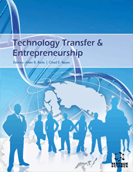Abstract
Background: Possibilities of transferring cost-effective, innovative water and wastewater technologies on public water markets are discussed based on the experiences of the Dutch water business cluster in the Central and Eastern European Countries. These transfers evolved under suitable conditions, among others financial support of the suppliers, obsolete local water technologies, demanding European policies and co-financing of the adopters’ investments. While acting in the cluster and the financial support reduced the suppliers’ transaction costs, the chance of successful transfer was low because adoption of the innovative water technologies is generally costlier than keeping obsolete technologies whose costs are sunk. The communities were prone to adopt the innovative water technologies if they can gain valuable water uses for public health, tourism, education, nature and so on.
Conclusion: Strict environmental demands are insufficient for the technology adoption because of poor enforcement. The suppliers’ technological know-how provides low value added because communities perceive water technology markets as transparent; income-generating models are more attractive. Subsidies for water innovations transfers reinforce the disparity between the suppliers and adopters’ interests when do not support value adding services related to water technologies. Integration of the value adding services in water innovations transfers is recommended.Keywords: Water innovations, international technology transfers, communities, central and eastern european countries.
 9
9 1
1 1
1

